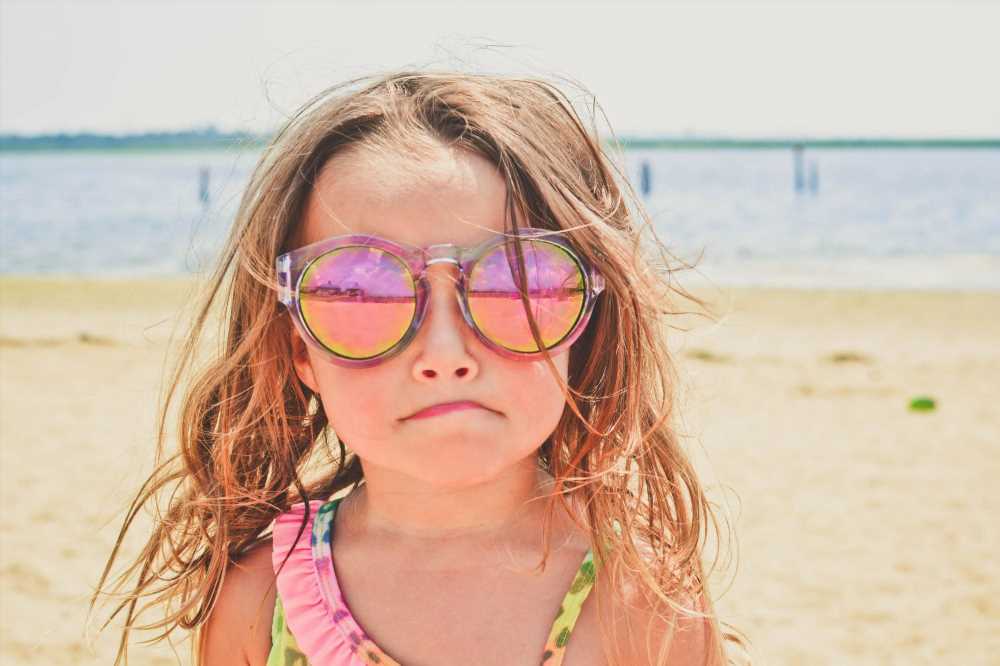AFTER a dismal summer, chances are you're taking full advantage of the blistering sunshine this weekend.
But with temperatures predicted to peak at 33°C in certain parts of the country, it could leave your little ones vulnerable to heat-related afflictions that could turn serious.
With hot and dry temperatures for the last few days, parents should keep an eye out for signs of dehydration, as well as heat exhaustion and deadly heat stroke.
How can I tell if my child is dehydrated?
When someone is dehydrated, it basically means their body is losing more fluids than they're taking in.
Though this might not sound particularly serious, dehydration can become dangerous if it's not treated.
Babies, children and older adults tend to be particularly at risk, NHS guidance states.
Read more on heatwave
Brits bask in 32C sunshine today ahead of ‘hot & dry weekend’
Heat health alert upgraded to amber in 8 areas as Met Office predicts 32C highs
GP and clinical consultant for patient.info Dr Sarah Jarvis previously told Sun Health that mums and dads should be "particularly careful" if their children are under one – and even more so if their baby is six months and younger, was born prematurely or had a low birth weight.
Signs of dehydration can be subtle, especially in young children.
But there are eight 'silent' symptoms all parents should watch out for in their babies and children this weekend.
- they're weeing less – having fewer wet nappies or using the potty or toilet less and producing dark, strong smelling pee
- they're not producing tears when crying
- they have a sunken soft spot on their head, called a fontanelle
- their eyes look sunken
- they seem irritable, drowsy or confused, or are complaining of thirst
- their lips, mouth or tongue are dry
- their hands and feet are cold to touch despite the heat due to circulation shutting down
- they're breathing faster than normal or their heart is beating faster
Most read in Health

From Aloe to Zea, the best herbal remedies and what they can do for your health

Signs of diseases hidden INSIDE your mouth – from cancer to HIV & how to check

I was told stabbing pains were in my head – docs sent me podcasts but I needed scans

The 7 paddling pool mistakes that increase the risk of serious injury & death
What can I do to stave off dehydration?
It's a good idea to keep your child out of the sun at the hottest part of the day, slather them in SPF 50 sun cream, pop a hat on their head and make sure there's always a drink on hand.
And it's important to remember, babies under six months should avoid sun exposure completely.
Fully breastfed babies don't need any extra water and formula should be enough to keep bottle fed little ones hydrated too.
Carry on feeding your baby as usual, but you can give them smaller and more frequent amounts if you think they're dehydrated, NHS guidance stated.
You shouldn't make your babies formula weaker or give young children fruit juice or fizzy drinks, the NHS said.
If you're worried dial NHS 111 or 999 in an emergency.
What is heat exhaustion and heat stroke?
If your little one has been in the sun or heat for a long time, they might experience heat exhaustion.
This won't need emergency help if you can cool your child down within about 30 minutes.
But it can develop into heatstroke, which means their body is dangerously overheated and needs to be treated as an emergency.
So parents should keep their eyes peeled for the easy-to-miss signs of heat exhaustion so they can act quickly.
They include:
- tiredness
- dizziness
- headache
- feeling sick or being sick
- excessive sweating and skin becoming pale and clammy or getting a heat rash – note that a change in skin colour can be harder to see on brown and black skin, it might taken on an ashen, grey or more yellowish hue. This might be easier to see on palms of hands, nails, eyes, gums or tongue
- sometimes children don't sweat as effectively as adults, so their skin might be hot and dry to the touch
- cramps in the arms, legs and stomach
- fast breathing or fast heartbeat
- a high temperature
- being very thirsty
- weakness
What should I do if my child seems to have heat exhaustion?
It's important to act quickly if you think your little one has heat exhaustion, by taking them to a cool or air-conditioned environment or a shaded area.
Then take off any unnecessary clothing or layers to help cool down the body and wet your little one's skin with cool – not cold – water.
This can be sprayed or sponged, or you can put damp towels or cloths their body, focusing on the neck, armpits, and groin.
You can also use a fan or create some sort of airflow to aid the cooling process.
And you can apply a cool compresses to your child's forehead, neck, or wrists to help bring down their body temperature, while giving them sips of water.
If your little one still seems unwell after 30 minutes of resting in a cool place, it's time to call 999.
The UK Health Security Agency (UKHSA) and Met Office this week issued an amber heat-health alert spanning eight UK regions, which is due to last until Sunday.
Read More on The Sun
Emotional Charlotte Dawson praised for showing off real body after giving birth
M&S fans are scrambling to get a laundry mist that instantly revives clothes
The regions included in the amber alert are:
- London
- South East
- South West
- North West
- East Midlands
- West Midlands
- East of England
- Yorkshire and the Humber
Source: Read Full Article





